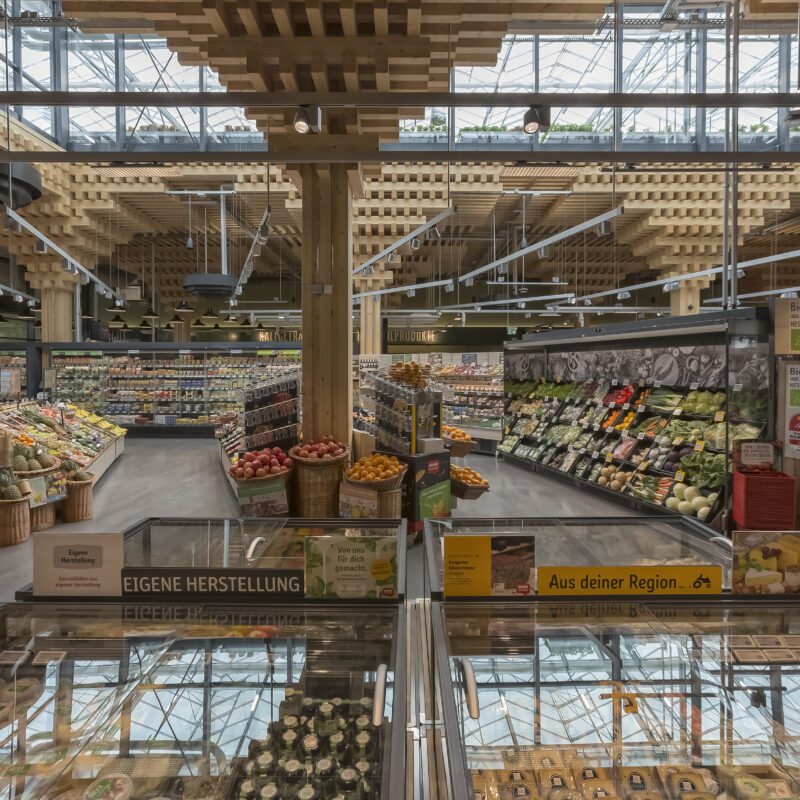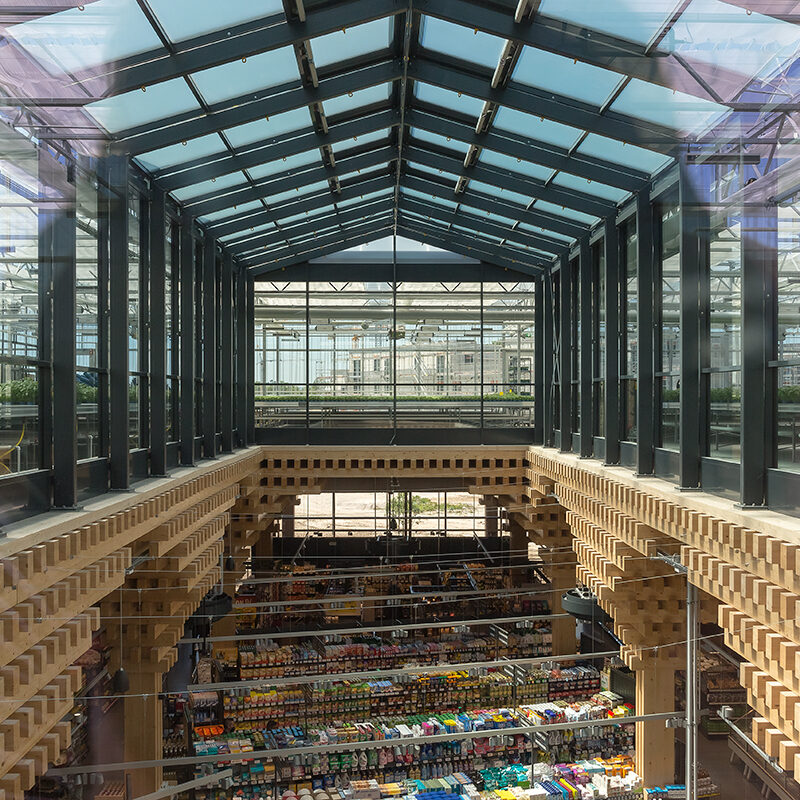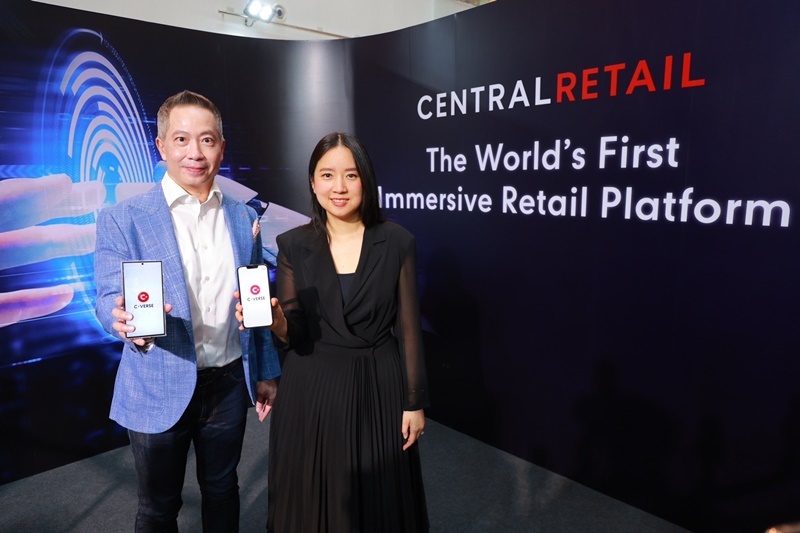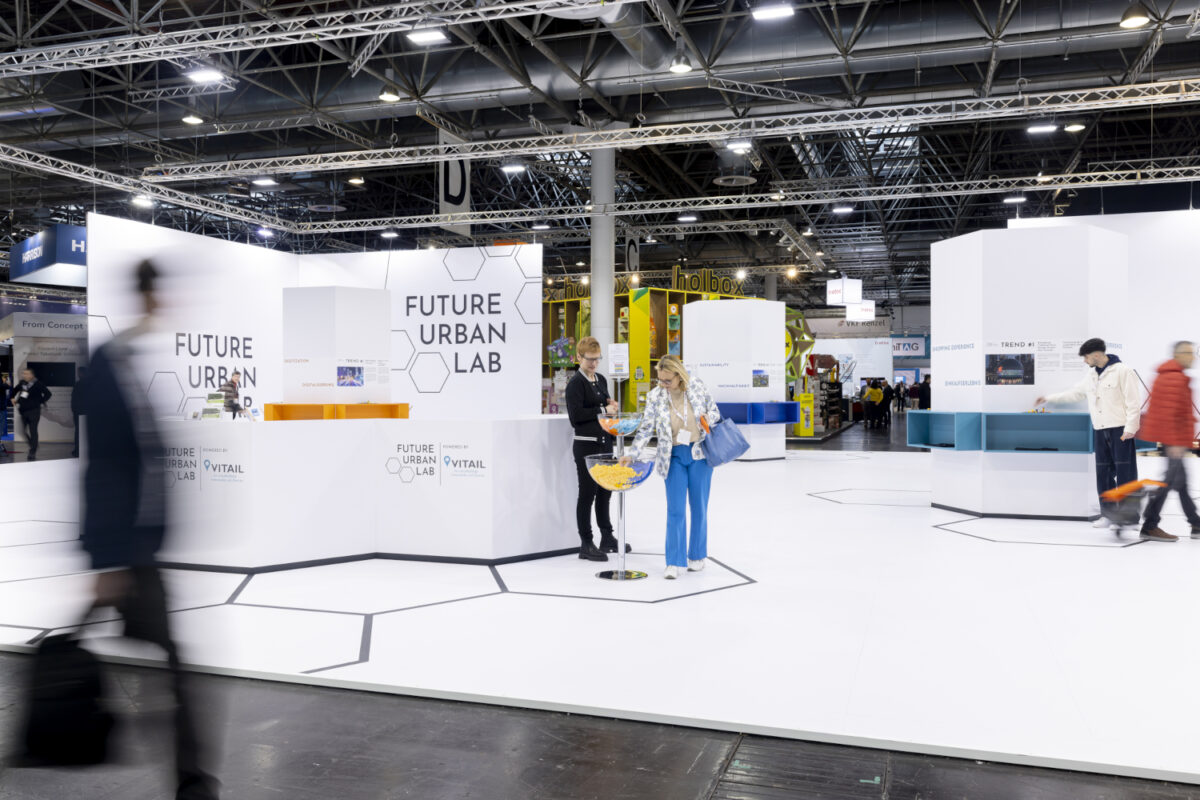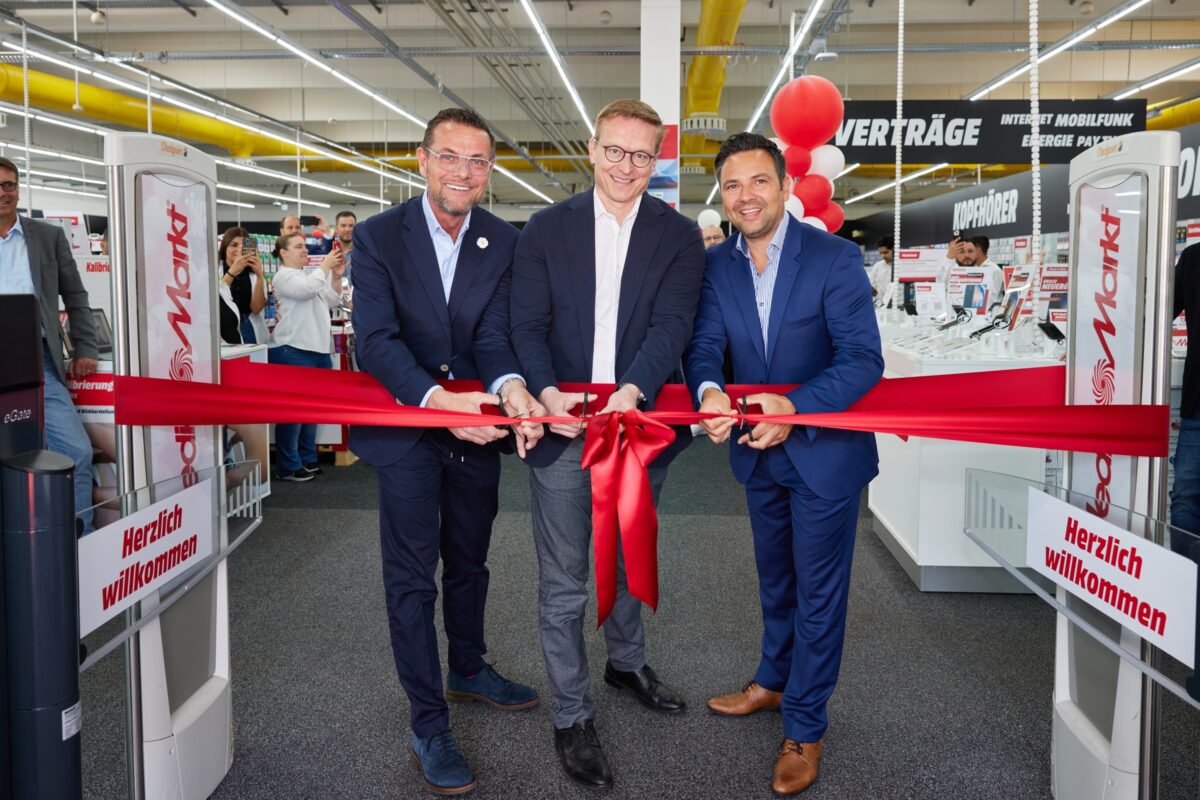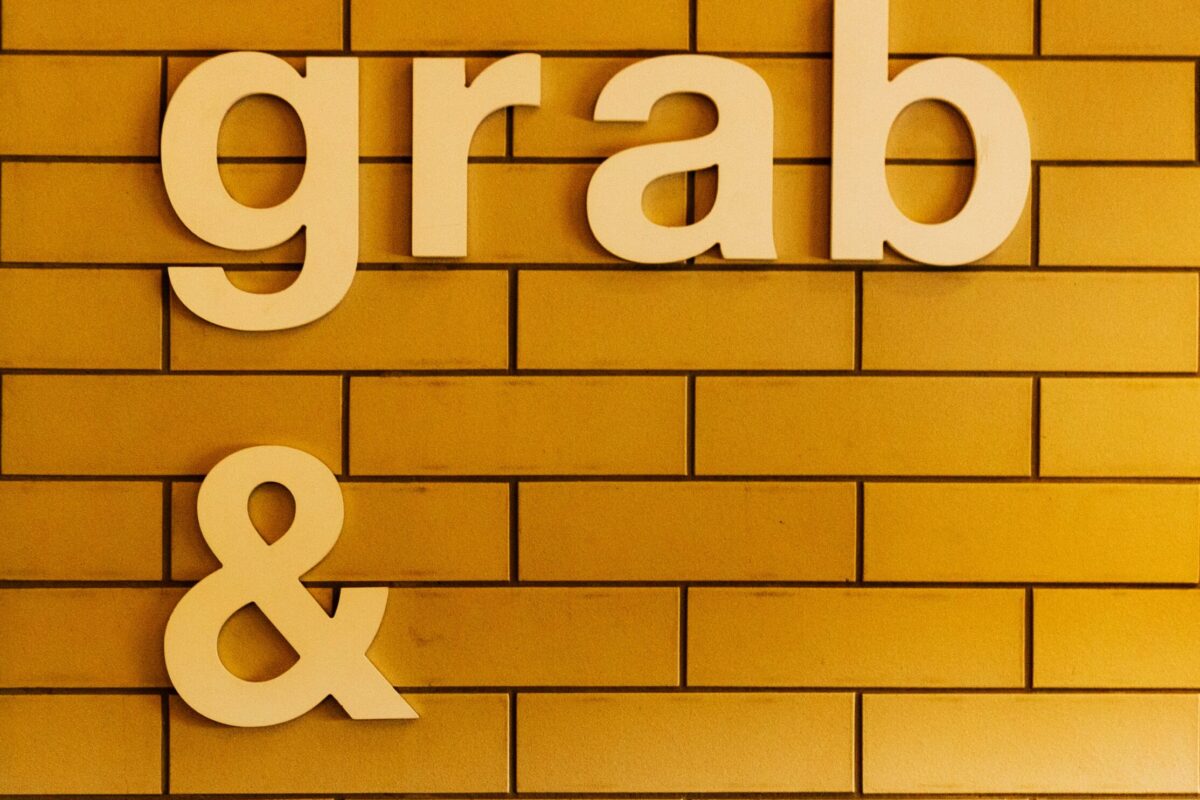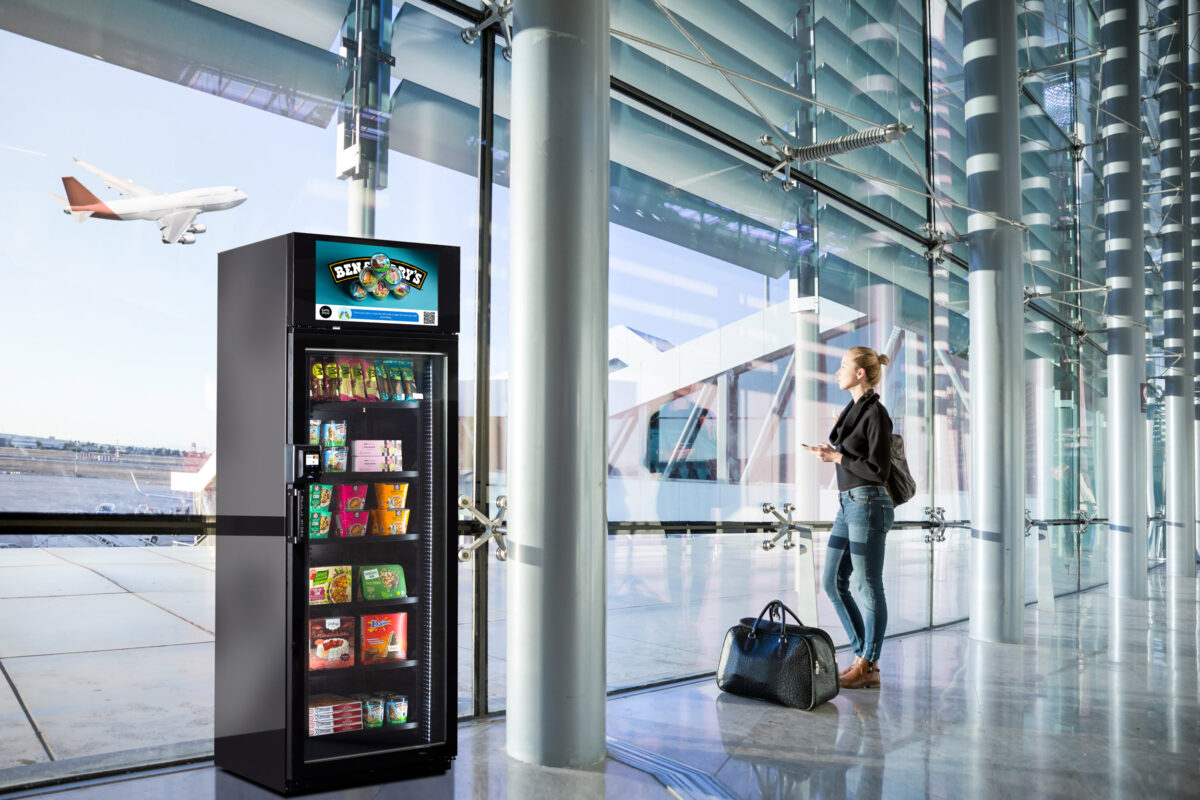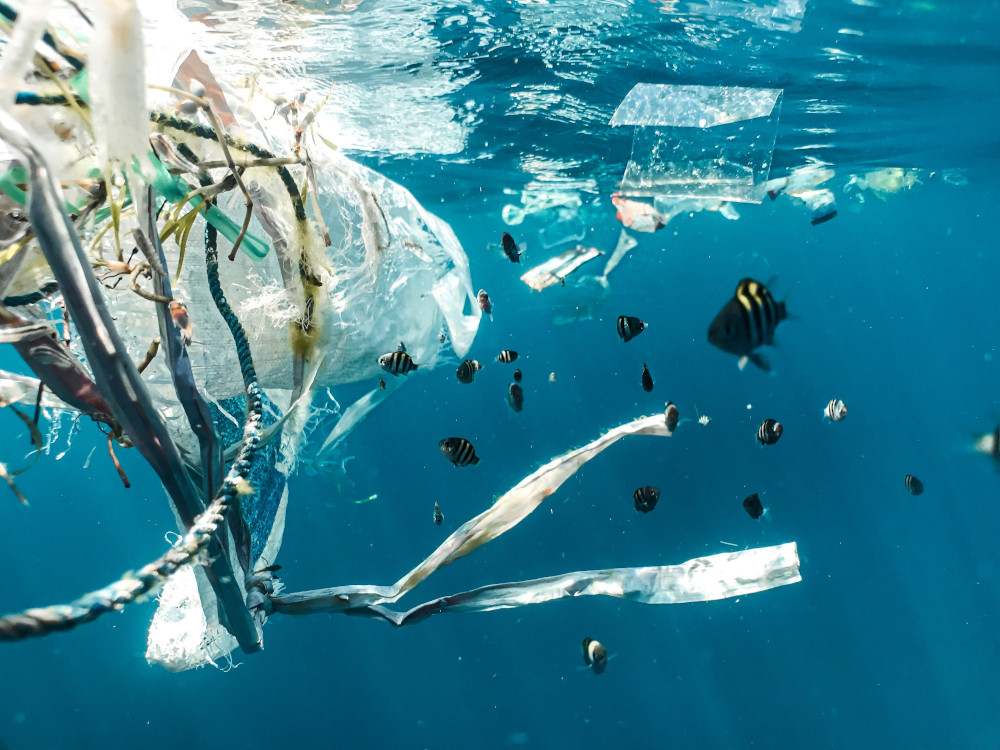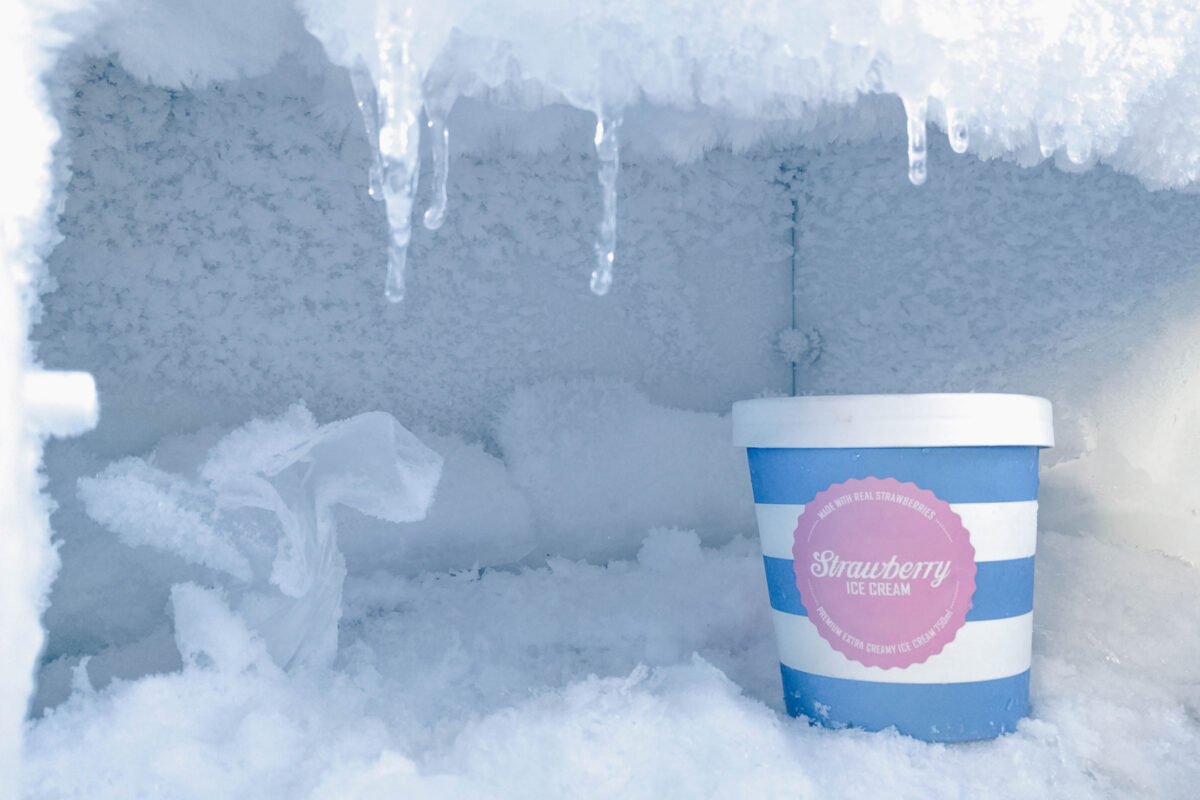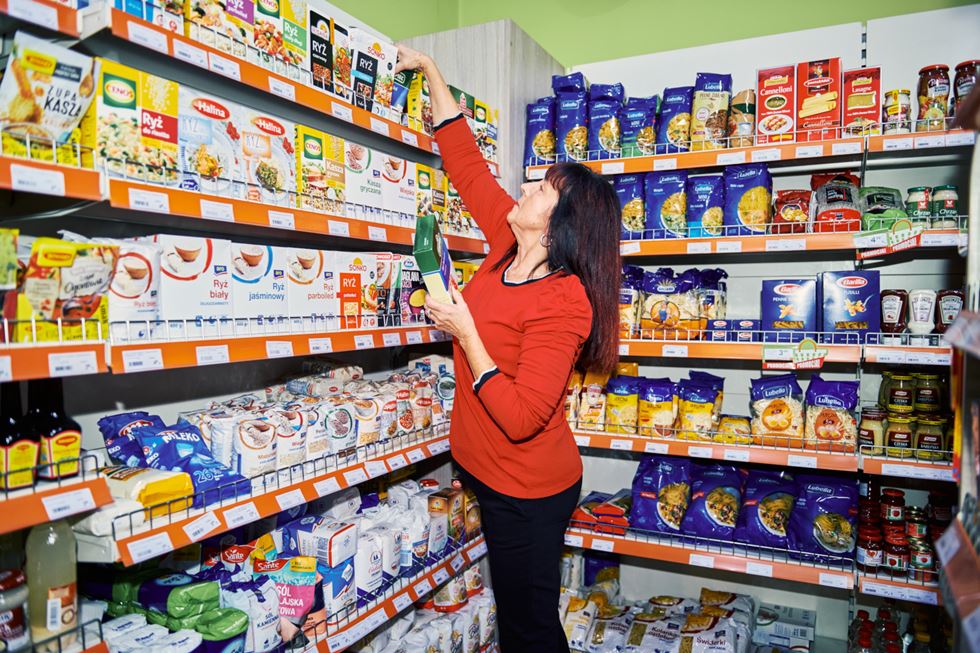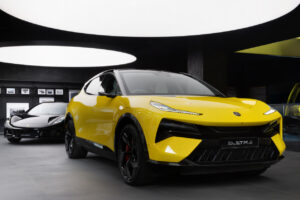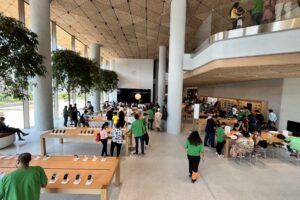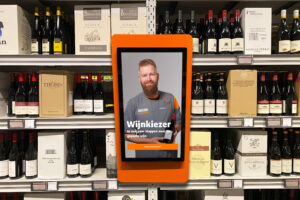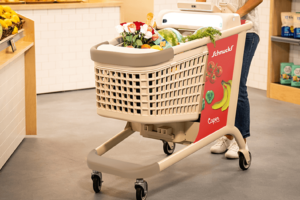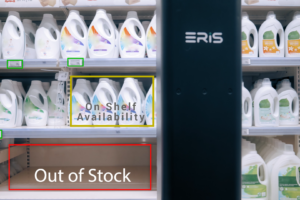REWE ushers in a new generation of green markets
by Elisa Wendorf (exclusively for EuroShop.mag)
Local, resource-efficient, trendsetting – the environment and most consumers appreciate it when the actions of retailers reflect these concepts. German supermarket chain REWE recently opened a sustainable, so-called Green Farming Market in Wiesbaden, Germany.
Built with plenty of wood, the innovative store also features a farm on its rooftop. Raimund Esser, Head of Corporate Communications at REWE, explained what this looks like and told us what sets the new store concept apart from conventional supermarkets.
Mr. Esser, why can the retail industry no longer ignore sustainability issues?
Raimund Esser: Sustainability now matters more than ever to a growing number of consumers. Marketing strategies that highlight regional and local products are becoming increasingly important. Whether and how companies make sustainability a priority and reflect this in their product assortments has become a key criterion in the consumer’s choice of retail store.
You are embracing this idea with a pioneering “green” supermarket. What makes it so unique?
The new green farming market not only has a sustainable product selection but also emphasizes sustainable construction and store management. Besides a wide range of products courtesy of 160 regional and local suppliers, the green farming market not only sells these products but also produces some items on site under sustainable and resource-efficient conditions. The new market features its own in-house rooftop farm to grow basil and fish. These foods are sold right in the shop and delivered to others stores in the region. This drastically shortens delivery routes, reduces plastic waste, and expands the assortment of fresh foods.
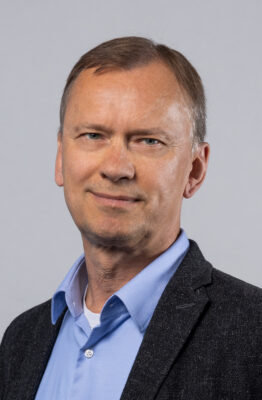
Raimund Esser // © REWE Group
How has sustainable resource management been implemented in the design and features of the store?
The building structure is largely made of natural, renewable, and sustainable wood, which stores more than 700 tons of CO2. In thirty years, the native softwood will have grown back, which will offset the CO2 balance. The architectural wood columns create a marketplace ambience that harnesses plenty of daylight – customers inside the market can see the rooftop farm through the glass atrium. The market also conserves natural resources by using intelligent cooling and heating technology that runs on one hundred percent green energy, and by harvesting rainwater for the rooftop farm, building cleaning services and sanitary maintenance.
The store also features a unique car park layout, in which the parking spaces are arranged in a circle. This design reduces sealed surfaces, thus creating additional green spaces and a flowering meadow to foster beneficial habitats for insects.
Environmental protection has many essential aspects. What elements were especially important to you?
“Green Farming” is based on the “concept of holistic sustainability” – a certification system of the German Sustainable Building Council (Deutsche Gesellschaft für Nachhaltiges Bauen, DGNB), developed to help organizations enhance the tangible sustainability of construction projects.
The concept takes five sustainability criteria into account. The first criterion pertains to environmental factors: our “green farming” model meets this criterion thanks to carbon neutral operation, the wooden support structure, the building’s excellent ecological balance sheet, rainwater harvesting, reduction of sealed surfaces and creation of natural, insect-friendly green areas. The concept also includes economic aspects: “green farming” complies as a result of reusing or secondary use, repurposing, and intrinsic value of the installed components and products. When it comes to sociocultural quality, the market offers visual and thermal comfort, excellent indoor air quality, extensive accessibility options, and dedicated bicycle parking. Due to the quality construction and the life expectancy of the building, the market also meets the technical quality standards of the Council. Finally, process quality is likewise met owing to transparent and documented project processes.
How does rooftop farming work?
The rooftop farm couples two resource-saving food production systems: the aquaculture cycle of fish production and the hydroponics cycle of plant production, also known as aquaponics. This cycling process uses 90 percent less water than traditional farming. Every week approximately 14,000 pots of basil are boxed in plastic-free packaging on site, which annually prevents up to twelve tons of plastic waste.
Around 20,000 cichlids (tilapia) are being bred in pools of around 230 square meters under sustainable conditions and processed on site. This generates up to a ton of salable fish every month. The excretions from the fish are used to fertilize the basil plants. No pesticides are used to grow the herbs. Since the opening of the store, the basil has been available for sale and is also being delivered to 480 REWE stores in Hesse and Rhineland-Palatinate. The fish is expected to go on sale by the end of 2021.
What other innovative services can consumers expect in the Green Farming Market?
One unique feature of the Green Farming Market is the “BasilikumQuelle” visitor center on the first floor. Interested customers can learn about our “aquaponics” rooftop farming system, horticulture (hydroponics) and the breeding, and harvesting of fish (aquaculture).
Customers can also expect a large variety of local, regional, and organic products, in addition to a dedicated bulk section. At the front of the store, local vendors can sell their merchandise at one of Rewe’s own market stalls, which are reminiscent of a farmer’s market. A glass butcher shop features a show kitchen and meat sourced from farm animal sanctuaries. Customers can watch how the store’s “basil sausage” is made.
Apart from the wide range of fresh products, customers can look forward to new digital services as well. They can use our “Scan & Go” in the store to self-scan their products via an app or hand scanner and pay at one of the express checkouts. A REWE pickup service lets customers save time and reduce contact by shopping online and opting for pickup at the store. They simply use one of the designated parking spots and checkouts to pick up their order, which was packed for them at the store. The market also has charging stations for electric cars and electric bikes.
Do you have other green farming supermarkets in the pipeline?
REWE has been focusing on green buildings in Germany since 2009. The market in Wiesbaden-Erbenheim is the first supermarket in Europe with a resource-saving food production facility on the roof. REWE currently has over 200 green buildings throughout Germany that are equipped with photovoltaic systems, improved daylight harvesting, and the latest refrigeration and heating technologies. Our goal is to expand the new generation of green farming markets in Germany and – depending on the circumstances – integrate rooftop farms.
What’s your take: What will supermarkets look like twenty years from now?
I think supermarkets will expand their product selection by including local and regional products. The percentage of vegan products and organic foods will probably also increase. Options that support a healthy, balanced diet and sustainable foods will shape the product choices. High animal welfare standards will become the norm when it comes to meats. Nearly all newly constructed markets will almost definitely be green buildings.




